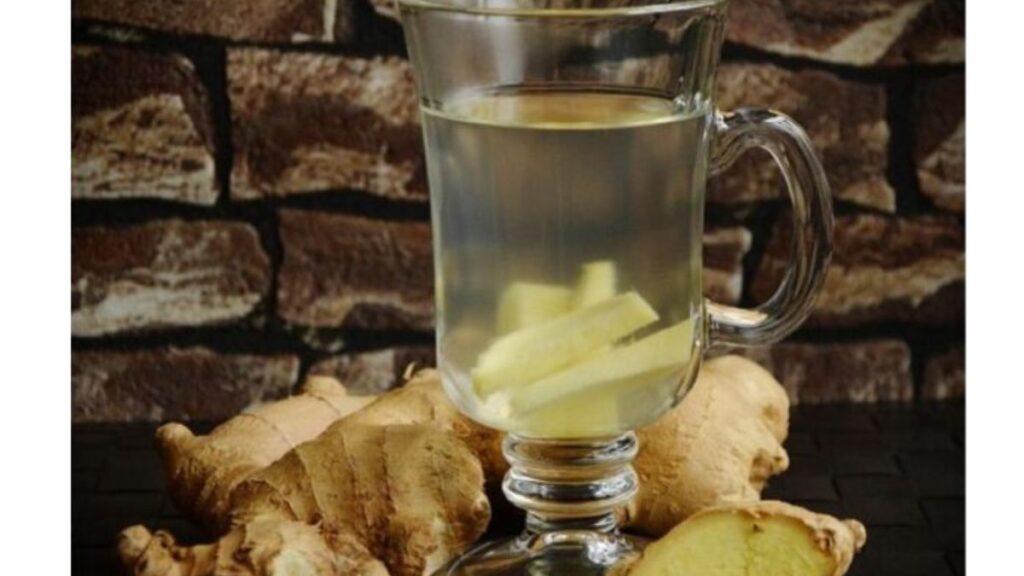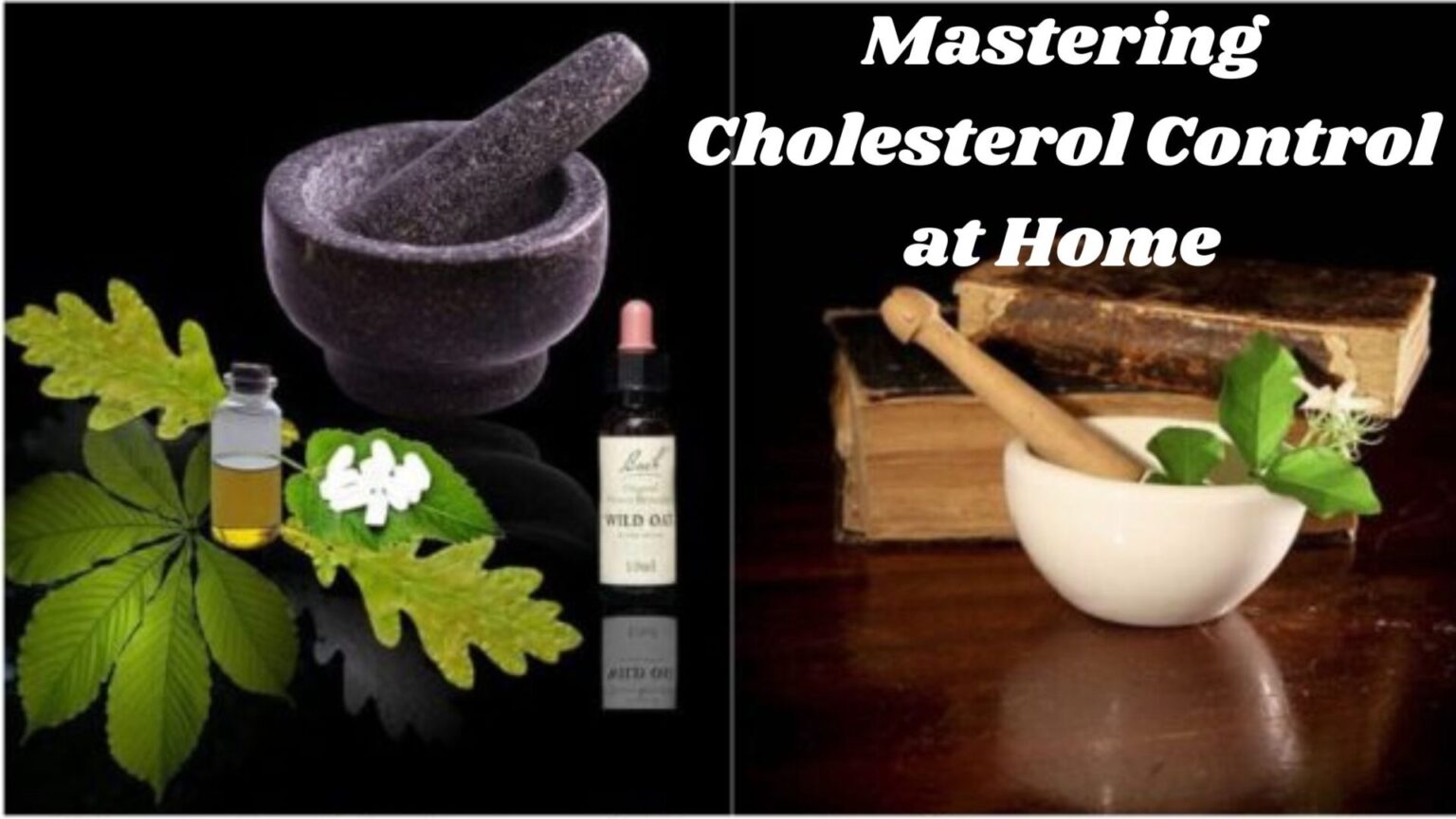Introduction:
Mastering Cholesterol Control at Home: Trustworthy and Effective Natural Remedies

In the pursuit of a healthier lifestyle, managing cholesterol levels plays a crucial role. The good news is that you don’t always need medications; nature has bestowed us with effective remedies. In this article, we’ll explore natural solutions for cholesterol control that you can trust, empowering you to take charge of your well-being.
Demystifying Cholesterol for Heart Health
( Cholesterol Control at Home)
Cholesterol is a crucial component of our body, playing a pivotal role in various physiological functions. To comprehend its impact on our health, it’s essential to distinguish between two types: LDL (low-density lipoprotein) and HDL (high-density lipoprotein) cholesterol.
LDL Cholesterol: The Not-So-Good Guy Often dubbed the “bad cholesterol,” LDL cholesterol is responsible for transporting cholesterol from the liver to the cells. However, an excess of LDL can lead to the accumulation of plaque in the arteries, hindering blood flow and posing a risk for heart-related issues.
HDL Cholesterol: The Heart’s Guardian Angel On the other hand, HDL cholesterol is often referred to as the “good cholesterol.” It works by removing excess cholesterol from the bloodstream and transporting it to the liver for excretion. High levels of HDL are associated with a lower risk of heart disease.
The Balancing Act for Heart Health Maintaining a delicate balance between LDL and HDL cholesterol is paramount for overall heart health. While some cholesterol is necessary for bodily functions, an excess of LDL can lead to atherosclerosis, a condition where arteries become narrowed and hardened due to the accumulation of plaque.
An optimal cholesterol profile involves keeping LDL levels in check and promoting higher levels of HDL. This balance not only supports cardiovascular health but also reduces the risk of heart attacks and other cardiovascular diseases.
Why Balance Matters: The Heart of the Matter The importance of maintaining this balance cannot be overstated. A harmonious interplay between LDL and HDL cholesterol ensures that the arteries stay clear, allowing for smooth blood circulation. This, in turn, minimizes the risk of arterial blockages and decreases the likelihood of heart-related complications.
In the following sections, we will explore effective and trustworthy natural remedies to help achieve and maintain this delicate balance. By understanding the dynamics of cholesterol and its impact on heart health, you’re better equipped to make informed choices for your well-being.
Harnessing the Power of Home Remedies for Cholesterol Control
In a world dominated by pharmaceutical solutions, the allure of natural remedies for cholesterol control is gaining prominence. Let’s explore the compelling reasons why opting for these home-based solutions can be a wise and effective choice, steering clear of potential side effects associated with synthetic medications.
1. Nature’s Harmony with the Body: Natural remedies are often derived from plants, herbs, and foods that our bodies have interacted with for centuries. Unlike synthetic medications, these remedies tend to work in harmony with our biological systems, minimizing the risk of adverse reactions.
2. Wholesome Nutrient Package: Many home remedies come bundled with a variety of essential nutrients, antioxidants, and phytochemicals. These components not only target cholesterol levels but also contribute to overall health and well-being. This holistic approach addresses the root causes of cholesterol imbalance rather than merely masking symptoms.
3. Minimal Side Effects: Synthetic medications, while effective, can bring a range of side effects that impact various bodily functions. Home remedies, in contrast, are renowned for their gentleness on the body. By harnessing the power of natural ingredients, you can often achieve cholesterol control without the undesirable side effects associated with pharmaceuticals.
4. Sustainable Long-Term Solutions: Natural remedies promote sustainable lifestyle changes, encouraging individuals to adopt healthier habits for the long term. Unlike medications that may require constant monitoring and adjustments, home remedies often contribute to overall well-being, fostering a proactive approach to health.
5. Personalized Approaches: Every individual is unique, and what works for one may not work for another. Home remedies allow for a more personalized approach to cholesterol control, considering factors such as dietary preferences, lifestyle choices, and individual health conditions. This tailored strategy enhances the likelihood of success.
6. Affordability and Accessibility: Home remedies are often more accessible and affordable than prescription medications. Incorporating readily available ingredients into your diet or daily routine can be a cost-effective way to manage cholesterol without the financial burden associated with pharmaceutical interventions.
7. Empowerment through Knowledge: Home remedies empower individuals to take an active role in their health. Understanding the properties of natural ingredients and their impact on cholesterol levels fosters a sense of control and self-efficacy, encouraging a proactive stance towards overall well-being.
As we delve into specific natural remedies in the following sections, keep in mind the inherent advantages of these approaches. By embracing the power of home remedies, you embark on a journey toward cholesterol control that aligns with the wisdom of nature and the well-being of your body.
Top Natural Remedies for Cholesterol Control
Now that we’ve established the benefits of turning to nature for cholesterol management, let’s delve into specific and effective natural remedies that have proven track records in promoting a healthier lipid profile.

1. Omega-3 Fatty Acids: Found abundantly in fatty fish like salmon, mackerel, and trout, as well as in flaxseeds and walnuts, omega-3 fatty acids are renowned for their ability to lower triglycerides and reduce inflammation. Including these foods in your diet can contribute to a healthier balance of LDL and HDL cholesterol.
2. Soluble Fiber Superstars: Foods rich in soluble fiber, such as oats, beans, lentils, and fruits, act like sponges, soaking up cholesterol and ushering it out of the body. Aim to incorporate these fiber superstars into your meals to help lower LDL cholesterol levels and support heart health.
3. Garlic’s Heart-Healthy Touch: Garlic has been celebrated for its various health benefits, including its potential to lower cholesterol levels. Allicin, a compound found in garlic, is credited with cholesterol-reducing properties. Whether raw, cooked, or as a supplement, garlic can be a flavorful addition to your cholesterol management plan.
4. Green Tea’s Antioxidant Boost: The antioxidants in green tea, known as catechins, have been associated with improved cholesterol levels. Regular consumption of green tea may help lower LDL cholesterol and enhance cardiovascular health. Consider swapping your regular beverage with a cup of green tea to harness its antioxidant benefits.
5. Avocado’s Healthy Fats: Rich in monounsaturated fats, avocados are not only delicious but also heart-healthy. These fats can contribute to increased levels of HDL cholesterol while lowering levels of LDL cholesterol. Incorporate avocados into salads, spreads, or enjoy them on their own for a tasty and nutritious cholesterol-friendly snack.
6. Nuts for Heart Health: Almonds, walnuts, and other nuts are packed with monounsaturated and polyunsaturated fats, fiber, and plant sterols, all of which contribute to lowering LDL cholesterol. Snacking on a handful of nuts or incorporating them into your meals can be a satisfying and heart-healthy choice.
7. Plant Sterols and Stanols: Found naturally in plants, sterols and stanols have a structure similar to cholesterol and can help block its absorption. Foods fortified with sterols or stanols, such as certain margarines, can be effective in reducing LDL cholesterol levels when included as part of a balanced diet.
8. Exercise for Heart Health: Physical activity is a natural and effective way to boost HDL cholesterol levels and lower LDL cholesterol. Regular exercise, whether through brisk walking, jogging, or other aerobic activities, contributes not only to cholesterol control but also to overall cardiovascular fitness.
9. Stress Management Techniques: Chronic stress can adversely affect cholesterol levels. Incorporating stress-reducing practices such as meditation, deep breathing exercises, or yoga can complement dietary changes in promoting a healthier cholesterol profile.
10. Maintain a Healthy Weight: Achieving and maintaining a healthy weight is crucial for overall heart health. Combining a balanced diet with regular physical activity contributes to weight management, positively influencing cholesterol levels.
Incorporating these natural remedies into your lifestyle can pave the way for effective cholesterol control. Remember that consistency is key, and it’s advisable to consult with a healthcare professional before making significant changes to your diet or exercise routine. By embracing these natural solutions, you’re taking proactive steps towards a heart-healthy and balanced life.
Holistic Lifestyle Strategies for Comprehensive Cholesterol Management
While natural remedies play a significant role in cholesterol control, adopting a holistic approach that encompasses lifestyle modifications is paramount. In this section, we’ll explore key lifestyle changes that synergize with natural remedies to enhance your cholesterol management journey.
1. Regular Exercise: Physical activity is a cornerstone of heart health and an indispensable component of cholesterol management. Engaging in regular exercise helps raise levels of HDL (good) cholesterol while promoting weight management. Aim for at least 150 minutes of moderate-intensity aerobic exercise per week, such as brisk walking, jogging, or cycling.
2. Strength Training for Metabolism: Incorporating strength training exercises into your routine can enhance muscle mass and metabolism. This, in turn, contributes to better weight management and overall cardiovascular health. Include resistance training exercises at least two days a week to complement your aerobic activities.
3. Stress Management Techniques: Chronic stress can adversely affect cholesterol levels, contributing to an unhealthy lipid profile. Implement stress management techniques such as meditation, deep breathing exercises, or yoga to promote relaxation and mental well-being. These practices not only benefit your mind but also positively impact your heart health.
4. Smoking Cessation: If you smoke, quitting is one of the most impactful steps you can take for your cardiovascular health. Smoking damages blood vessels, reduces HDL cholesterol, and increases the risk of atherosclerosis. Seek support and resources to quit smoking, and witness the positive impact on your overall well-being.
5. Limiting Alcohol Intake: While moderate alcohol consumption, particularly red wine, has been associated with heart health benefits, excessive alcohol intake can have adverse effects on cholesterol levels. If you consume alcohol, do so in moderation, adhering to recommended guidelines.
6. Adequate Sleep: Quality sleep is vital for overall health, including cholesterol management. Lack of sleep may disrupt metabolic processes, leading to weight gain and imbalances in cholesterol levels. Strive for 7-9 hours of quality sleep each night to support your body’s natural healing and rejuvenation processes.
7. Hydration Matters: Staying adequately hydrated is often overlooked but is crucial for overall health. Water supports metabolic processes and aids in digestion, contributing to a healthy weight. Swap sugary beverages for water to make a positive impact on your cholesterol and overall well-being.
8. Balanced Nutrition: In addition to incorporating specific cholesterol-friendly foods, maintaining a well-balanced diet is essential. Focus on whole foods, including a variety of fruits, vegetables, lean proteins, and whole grains. Limit saturated and trans fats, as well as refined sugars and processed foods.
9. Regular Health Check-ups: Regular health check-ups and cholesterol screenings are crucial for monitoring your progress and identifying any potential issues. Work collaboratively with your healthcare provider to set and achieve cholesterol goals tailored to your individual health profile.
10. Social Support: Maintaining a healthy lifestyle is often more achievable with the support of friends, family, or a community. Share your goals with others, and consider engaging in activities that promote a healthy lifestyle together. A supportive environment can contribute to long-term success.
By integrating these lifestyle modifications into your daily routine, you create a comprehensive framework for cholesterol management that extends beyond specific dietary changes. Remember, small, sustainable adjustments over time can lead to significant improvements in your overall cardiovascular health. Always consult with your healthcare provider before implementing major lifestyle changes, especially if you have underlying health conditions.
Conclusion:
Summarize the key takeaways, emphasizing the trustworthiness and efficacy of natural remedies for cholesterol control. Encourage readers to integrate these lifestyle changes gradually for sustained and long-term benefits.
FAQs
- What is cholesterol, and why is it important to control it? Cholesterol is a fatty substance found in your blood. While your body needs it to build healthy cells, having high levels of cholesterol can increase your risk of heart disease. It’s essential to control cholesterol levels to maintain heart health and overall well-being.
- What are the natural remedies for controlling cholesterol? Several natural remedies can help manage cholesterol levels, including dietary changes, regular exercise, herbal supplements, and lifestyle modifications. These methods can be effective in lowering cholesterol and reducing the risk of heart disease.
- What dietary changes can help lower cholesterol? Eating a diet rich in fruits, vegetables, whole grains, and healthy fats like those found in olive oil, nuts, and avocados can help lower cholesterol levels. Additionally, reducing intake of saturated and trans fats, as well as limiting cholesterol-rich foods like red meat and full-fat dairy products, can be beneficial.
- How effective is exercise in controlling cholesterol? Regular physical activity can help raise HDL (good) cholesterol levels and lower LDL (bad) cholesterol levels. Aim for at least 150 minutes of moderate-intensity exercise or 75 minutes of vigorous-intensity exercise each week to help manage cholesterol levels.
- Are there any herbal supplements that can aid in cholesterol control? Certain herbal supplements, such as garlic, artichoke extract, and red yeast rice, have been studied for their potential cholesterol-lowering effects. However, it’s essential to consult with a healthcare professional before starting any herbal supplements, as they may interact with medications or have side effects.
References
- Mayo Clinic Staff. (2022). Cholesterol: Top foods to improve your numbers. Mayo Clinic. Retrieved from https://www.mayoclinic.org/diseases-conditions/high-blood-cholesterol/in-depth/cholesterol/ART-20045192
- American Heart Association. (2022). How to Get Your Cholesterol Tested. Retrieved from https://www.heart.org/en/health-topics/cholesterol/how-to-get-your-cholesterol-tested
- National Heart, Lung, and Blood Institute. (2021). Lowering Your Cholesterol with TLC. Retrieved from https://www.nhlbi.nih.gov/health-topics/all-publications-and-resources/lowering-your-cholesterol-tlc
- Lee, J. H., O’Keefe, J. H., Lavie, C. J., & Marchioli, R. (2016). Omega-3 fatty acids for cardioprotection. Mayo Clinic Proceedings, 91(3), 372–382. doi:10.1016/j.mayocp.2015.12.013






